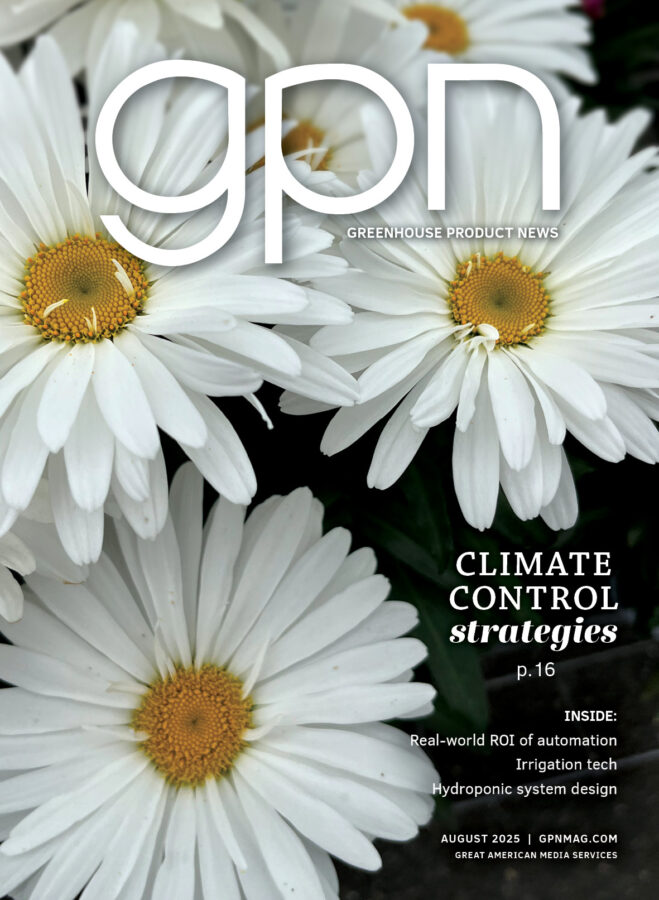Who Is Your Direct Customer?
I think this is a very good question. Some of you may know who your direct customer is and some may not. Back in my machining days I was asked this very question and before I really thought about it, I answered. And I was wrong … like many people, I was not alone.
Direct customers can fall into many different categories for a lot of different companies, but, for the most part, your direct customer is and should be the next person you hand off your job to. Especially in production, each one of us has a specific job, a role, and when we’re done with our part we hand the product off to the next person who in turn does their part. In the case of plants, you might finish propagation and send the plug or rooted cutting to production. If you are a finished grower, you hand the plants off to the distributor or a retail operation. So even though the plants end up in a homeowner’s house, yard or bouquet, your direct customer might be the retailer.
Quality From the Start
Quality must be in it from the start, right? Then we do our job and add more quality with our specific process — being a great grower. If we fail to do our job correctly and pass the product on to the next person who just might be the person working on the other side of the bench, better yet the person working next to you, then you have failed them. How are they going to do their job when you give them something below standard? They cannot usually correct a poor quality plant at this stage.
A good example: you can be the best grower and grow something with real vibrant color, a possible best seller. Then the pots you use malfunction because the manufacturer failed you. I have seen some pots over the years without drainage holes. How are you going to fix that? The person filling the containers with potting medium also failed you since he did not notice this problem before your plants were transplanted into these defective pots. You spent a lot of time and money to produce something special on your end only to have it fail on the next person — in this case it might be on your production line or even the end consumer.
The bottom falls out, the plastic hangers don’t work, it doesn’t matter, they have failed you. You were their direct customer. At this point there is nothing you can add to the pot to make it better, no quality can be added.
Consider Your Customer
Think about the seed you use. You are the seed companies’ direct customer. If they fail you, how are you supposed to fix their mistake? Can you add quality into the seed before you start your process? No, they failed you as a direct customer. Sometimes we try to correct a disease problem that we receive by using fungicides. This can work and since plants are sometimes able to outgrow a disease, you might end up with a salable plant. However, it will cost you more in the inputs and time on the bench.
This does not only apply in our industry but across the board in all industries. As a society during the production phase of what we’re producing, we always should be thinking about the next person — your direct customer. Often more times than not the cost to produce comes into play and it seems like your direct customer sometimes does not receive a good quality product because of cost cutting.
All of us are direct customers — do we not have some sort of standard of acceptance? We certainly expect the person before us to give us a product that is high quality since that makes our job possible. It is often easier to identify with the next person in the line than the end customer.
You usually know the next person in the supply chain. Think of them next time you decide to take a short cut, even if you do not think of the end customer who will never know you. Most of us would not hand below-par products to our friends, would we?
By the way, the person who asked me that important question was our quality control manager!
Chase Agricultural Consulting, LLC was formed at the end of 2011 when Ann (A.R.) Chase and Mike Zemke moved to Arizona. Ann has more than 35 years experience in research, diagnostics and practical consulting in plant pathology. She has been retired from the University of Florida – Mid Florida Research and Education Center in Apopka since 1994, but remains on staff as a Professor Emeritus. Mike holds an Associate of Applied Science in manufacturing drafting. Mike started his education in horticulture when he and Ann were married in 1995. He specializes in communications of all sorts within the industry.









 Video Library
Video Library 


















